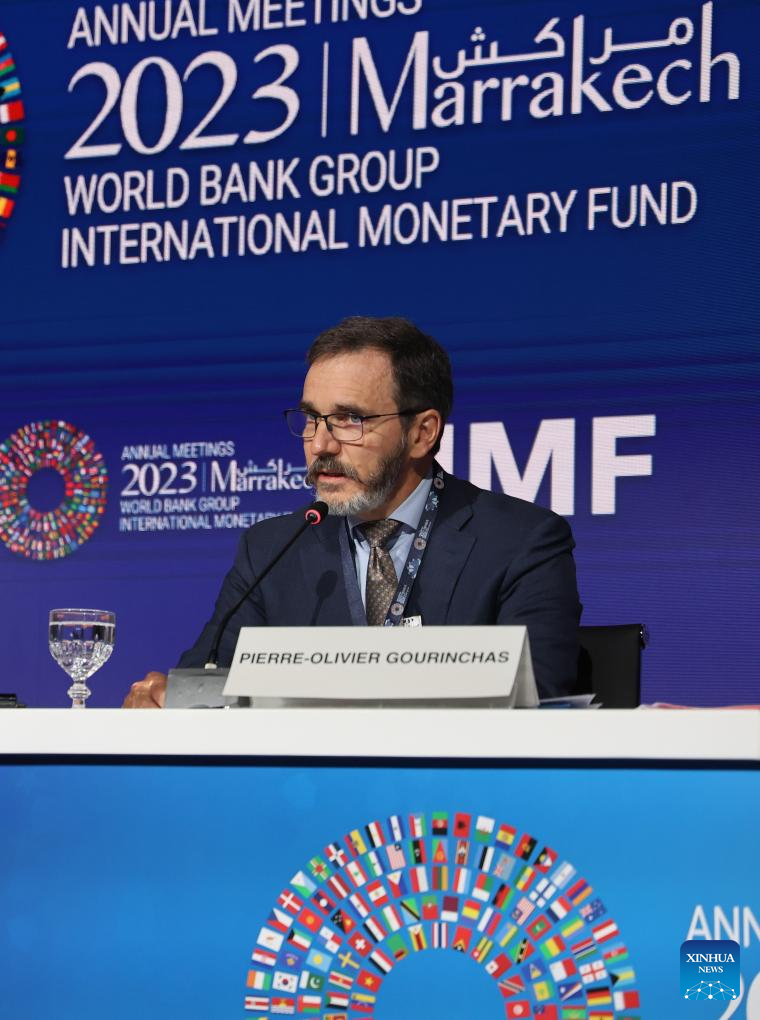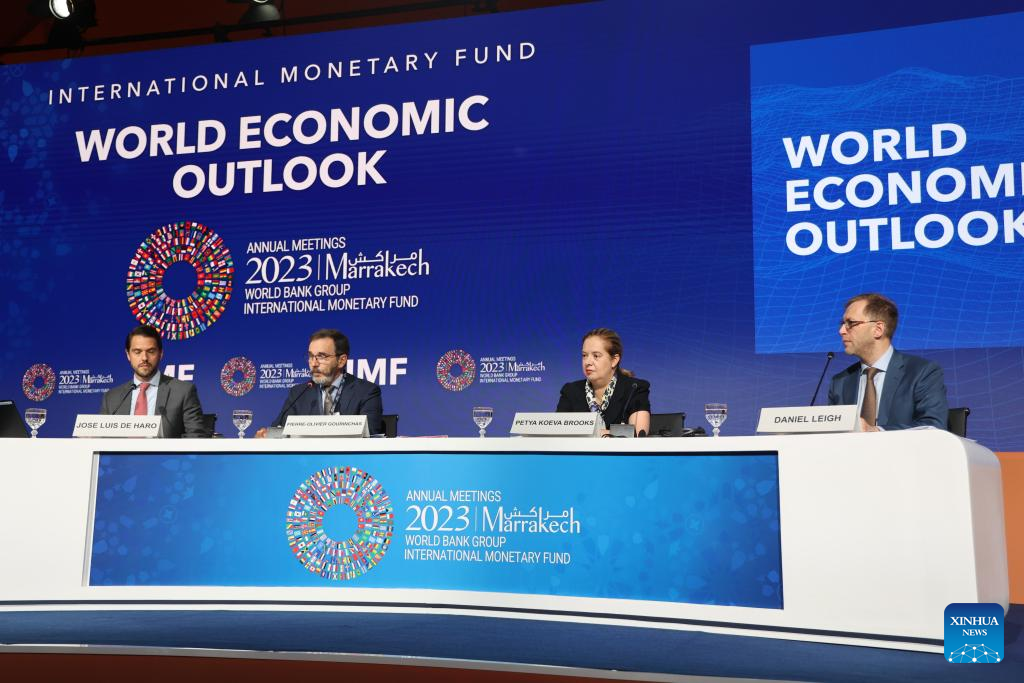IMF estimates a "limping" global economy in 2023

International Monetary Fund (IMF) chief economist Pierre-Olivier Gourinchas speaks at the press conference on the IMF release of the World Economic Outlook report in Marrakesh, Morocco, Oct. 10, 2023. The IMF predicted that global economic growth to slow from 3.5 percent in 2022 to 3.0 percent in 2023 and 2.9 percent in 2024. (Xinhua/Huo Jing)
MARRAKECH, Oct. 10 (Xinhua) -- The International Monetary Fund (IMF) on Tuesday estimated global growth to slow from 3.5 percent in 2022 to 3 percent this year.
"The global economy is limping along, not sprinting," wrote the IMF's new World Economic Outlook report titled "Navigating Global Divergences" released during the 2023 World Bank-IMF Annual Meetings ongoing here in the city of Marrakesh in Morocco.
In the report, the IMF projected a 2.9 percent growth for 2024, downgrading its previous estimate of a 3 percent growth in July due to a slower-than-expected recovery from the impact of the COVID-19 pandemic and the Ukraine crisis.
In retrospect, the global economy has been resilient to disruption in energy and food markets caused by the war, as well as the unprecedented tightening of global monetary conditions to combat decades-high inflation, the report said.
However, it worried that the growth remains slow and uneven, with growing global divergences.
The slowdown is more pronounced in advanced economies than in emerging markets and developing ones. For advanced economies, the expected slowdown is from 2.6 percent in 2022 to 1.5 percent in 2023 and 1.4 percent in 2024, amid stronger-than-expected momentum of the United States but weaker-than-expected growth in the euro area.
Emerging markets and developing economies are projected to see a modest decline in growth rate from 4.1 percent in 2022 to 4 percent in both 2023 and 2024, with a downward revision of 0.1 percentage point in 2024.
Meanwhile, the IMF warned that the intensification of geoeconomic fragmentation will not only mean high costs for global prosperity but also hamper multilateral cooperation in providing crucial public goods, such as fighting climate change and future pandemics and ensuring energy and food security.
As for the ongoing Palestinian-Israeli conflict, IMF chief economist Pierre-Olivier Gourinchas said it is "too early" to assess its impact on global economic growth, and the IMF was "monitoring the situation closely."
"We've seen that in previous crises and conflicts, and of course, this reflects the potential risk of disruption either in production or transport of oil in the region," he warned.

This photo taken on Oct. 10, 2023 shows the press conference on the International Monetary Fund (IMF) release of the World Economic Outlook report in Marrakesh, Morocco. The IMF predicted that global economic growth to slow from 3.5 percent in 2022 to 3.0 percent in 2023 and 2.9 percent in 2024. (Xinhua/Huo Jing)
Photos
Related Stories
Copyright © 2023 People's Daily Online. All Rights Reserved.









